Since we already touched on the subject in an earlier post, we figured we should spend a little more time talking about coffee imports, origins, farming, crop cycles, and things related to the greater supply chain. If you were not aware, most if not all coffee that is traded is packed and shipped in burlap sacks. Long live Three-Legged races! This is what it would look like if you ran toward a wall of green coffee sacks at a wholesale coffee importer. Or maybe just a busy Roasting Company.
All those burlap sacks are filled with millions of tiny little coffee cherry seeds. So how did they get into those bags? Humans? Machines? Automation? Magic? Well, it's kind of a mix of all of those things depending at what stage of processing the coffee is. (Note: "processing" can be a scary word) Just to be clear - coffee is one of the most natural products you can consume. There is no evil processing or additives or chemicals. We just mean "the process" by which the coffee cherry seeds eventually land in your cup. We will post on that in the future.
For now what you need to know if you did not already is that the entire harvesting process begins by hand. Specialty coffee is typically all hand picked. Every last cherry. No, we are not kidding. Yes, we said HAND picked. At least in the world we call Specialty Coffee. No shaking trees and shrubs with vibrating machines. No taking over-ripe, or under-ripe cherries. No trouncing around on the plant roots and soil mass with heavy machinery. Just good old-fashioned TLC from human hands. Lots and lots of delicate human hands.
Understand that the vast majority of the world's coffee supply is mechanically harvested. But the vast majority of coffee grown and sold is not defined as Specialty Coffee. We'll do a Post on that subject too later on down the road. So mechanical coffee harvesting is typically reserved for coffee shrubs grown at lower elevations due to the need for less challenging topography for the machines to work and roam around. Access to more space, flatter terrain, better infrastructure all factor into this as well.
A large portion of specialty coffee comes from higher elevations, on varying terrain that typically is, or borders on, being mountainous. And it's grown on farms that range from gigantic, to really large, and all the way down to tiny. Heck, in Yemen coffee is grown on rooftops! Some think that the higher up the coffee is grown, the better. We tend to agree, but like everything in life it is not that simple. But as we were saying, hand picking is still the time honored harvest method. Hand picked coffee is not a bad thing. In fact, it's a great thing. That is because the human eye can be way more selective in terms of picking only ideal, ripe fruit... At least for now until the robot apocalypse comes for us.
To say we are are appreciative of the all the work that goes into hand picking specialty coffee is an understatement. But to be clear, it's not something most people in America would want to do - or are used to doing. Or dare we say would even consider going back to doing. But hard work is a beautiful thing. We still believe in the benefits a hard day's labor provides a person. A lot of coffee producing countries are still making their way from the third world to the first world. What this means is they are still very much agrarian societies. So lots of good, hard working people are employed in the coffee trade. It's not easy to be a coffee picker, as you could imagine. But having access to jobs is a good thing.
Coffee production accounts for an incredible amount of jobs worldwide. At this point you might begin to start asking yourself, 'Well how the heck is coffee so cheap then, relative to the amount of work it takes just to get the cherries of the plant?' I know, right? Starts to make you think, and wonder, and become even more curious about the entire process. And hopefully to become more grateful that we have access to such an amazing gift.
Look at all that coffee! Nothing short of a ton of work, right? Coffee is sourced in various ways by our importer and can vary wildly depending on the region of the world in question. And as you can imagine it takes a lot of experience, travel, and plenty of connections at the origin to source high quality coffee. This is accomplished by arranging deals directly with certain farmers, creating relationships with mills that pool the resources of many farms, purchasing from farmers co-ops, and even bidding on lots at markets - such as in Kenya. To add more complexity to the system, each Origin has its own harvest timetables.
Mills and Co-ops can have very rigorous standards on what they will accept and pay farmers for, and they also can have lax standards. But they play an important function in the chain aside from production in that they are a funnel that makes sure the majority of coffees being grown are graded, sorted, and sent to the right people at the right price. This ultimately facilitates the growth of more coffee by making sure farmers are able to sell their current crop.
That's not to say that all crops will fetch the same price for a farmer. That's a whole other topic. But just know that for the most part a farmer in any given part of the coffee growing world can find a buyer for their coffee. The Specialty Coffee Industry has played an important leadership role in helping farmers elevate their coffee growing game to a point where one can earn much more of a premium on their coffee, when the right attention to detail is paid. This is of course another complex topic to be detailed in the future.
And to reiterate, all of this is just one spoke in a very large wheel. The coffee still has to be hand picked first, remember? Buying coffee at Origin sounds great if you are the globe trotting, Indiana Jones, adventuring, traveling type - eh? We, however, prefer to keep it a bit closer to home. Which is why we are thankful to have a great relationship with our importer. That allows us to focus on the roasting part, and on writing fun Posts to help drop some knowledge on you. Of course we still have a lot of decisions to make on what coffees we want to source, roast, and offer our customers.
At Wisecrack Roasting Company, we make every effort to make sure you are getting the cleanest, best tasting coffee while attempting to make sure the money we spend at wholesale supports farmers & organizations that we believe in. We take pride in spending a lot of our time doing research on coffee origins and the sourcing methods used by our importer and the larger industry including countless hours reading about farms, coffee varieties, processing, mills, water, etc.
Fortunately, our importer also provides us with farmer bios and cooperative information. If we feel a coffee is too generic or too widely sourced then we pass. There are infinite variables in coffee. Some of those are variety, elevation the coffee is grown, and farming practices. So it starts to become apparent that if coffee is sourced from too many farms, over too large of an area or difference in elevation, you could just end up with a vanilla milkshake. Don't get us wrong, we like those too but we want to keep the "Special" in specialty coffee. Sourcing and offering coffees that stand out is what we do. And we know there is a lot of coffee out there for you to choose from. But just remember that what we do is vastly different from what you will find on supermarket shelves.
Whenever possible we try to choose coffees for our roasts that originate from family owned farms at the origin. But that doesn't mean we only buy coffees from one specific farm. A lot of Co-ops do a tremendous job of aggregating local coffee from tiny stakeholders in any given region. For example, we have a couple of coffees on hand right now that fit that bill. See them here.
We have taken a great deal of time to create our Wisecrack Series Designations. More on that later, but know that we created a hierarchical system for our customers that provides not just origin information, but that serves as a great guide map for helping you to understand just how unique and amazing coffee really is. In fact, in the future specialty coffee will be far beyond where wine is currently regarding region, variety, and all things "terroir."
Starting to see the complexity and the links here? We hope we've shined some more light on the international nature of the coffee trade. It's a system that works really well from the logistics side. Everyone in the supply chain does their part - then we do ours. With them serving as experts in sourcing green coffee and Wisecrack then making it right for your cup.
So the next time you think about how much money your coffee costs, think about what we just explained. And that is just to tip of a really big iceberg. You are drinking a product that is hand picked. For the amount of time, resources, care, knowledge, etc. that goes into your cup... it's still typically not much more $1 per ounce. That hard working person on the farm has to hand pick dozens of cherries to get that 1 ounce of finished product in your hands. Mad respect! So please be mindful and enjoy your next cup. Cheers!


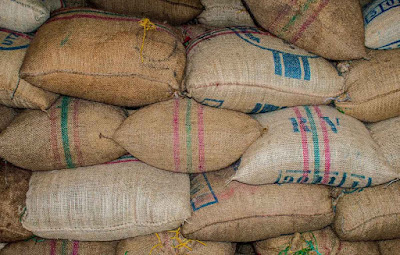
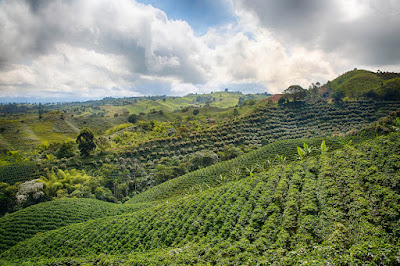
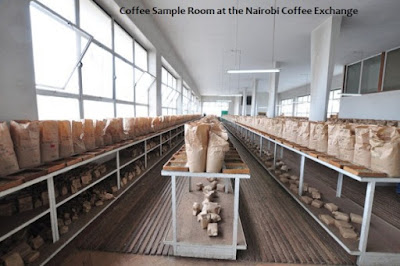
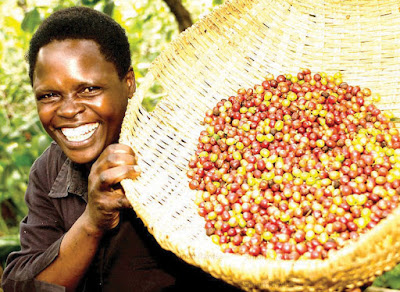
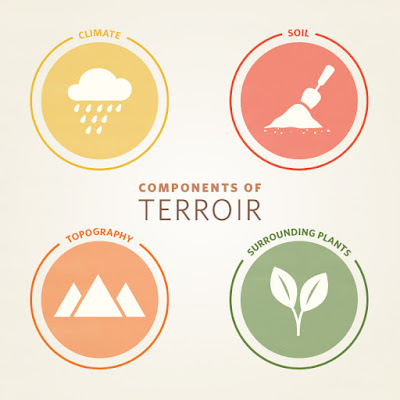
No comments
Post a Comment
We appreciate you taking the time to engage with us...thank you!